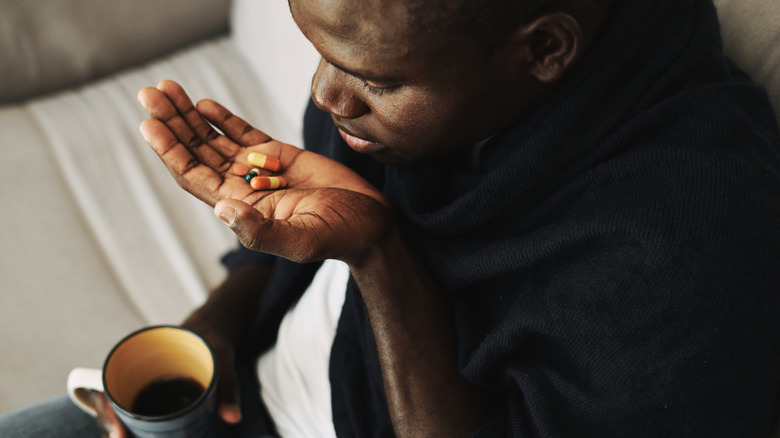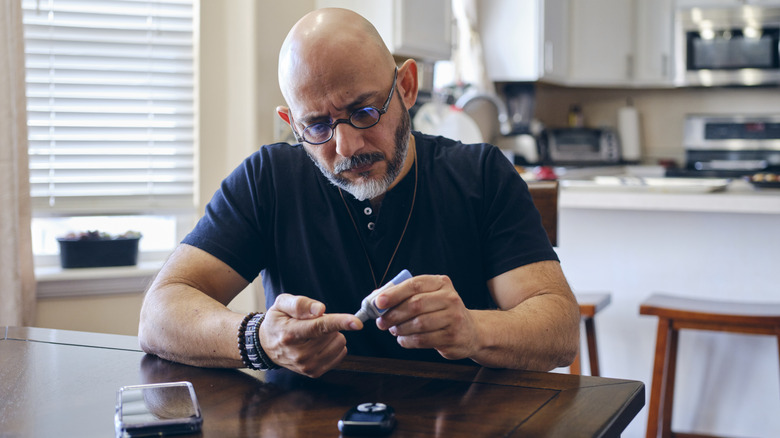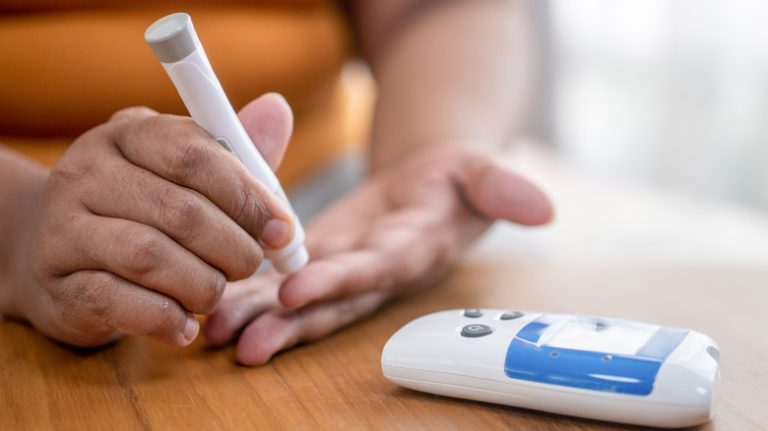
As reported by Drive Research, nearly 75% of people in the U.S. drink coffee at least once daily, and 93% of survey participants consume the beverage weekly. With such statistics, it’s likely that you are a coffee enthusiast. Thus, it’s wise to understand if coffee could interact negatively with any medications you’re using.
Diabetes medications are one category that might interact with your morning coffee. According to the Healthcare Communications Network, coffee intake may reduce the efficacy of medications like glimepiride (Amaryl), glyburide (DiaBeta, Glynase PresTab, Micronase), insulin, pioglitazone (Actos), and rosiglitazone (Avandia) in managing blood sugar. This is due to two main factors: the potential sugar or creamer you add to your coffee, and caffeine’s effects.
What you’re adding to your coffee can raise your blood sugar

Incorporating milk or sugar into your coffee can affect the effectiveness of diabetes medications by spiking your blood sugar. This is particularly true if you enjoy specialty coffee drinks from your favorite café. For instance, a grande caramel Frappuccino from Starbucks contains a staggering 60 grams of sugar (approximately 15 teaspoons) in a 16-ounce serving, according to Inspira Health.
Looking for a better option? Toby Smithson, RDN, CDCES, suggests to diaTribe Learn that opting for black coffee without milk or sweeteners is best. (Here are additional tips for ordering a healthier Starbucks drink.) However, you don’t have to skip creamer entirely. Low-sugar, low-carb alternatives made with almond milk, coconut cream, or sugar substitutes are suitable. You can also use half-and-half or heavy cream sparingly.
According to Medical News Today, acceptable sugar substitutes include sweeteners like stevia, monk fruit, tagatose, sucralose, aspartame, acesulfame potassium, saccharin, neotame, allulose, and agave nectar.
Caffeine in coffee can affect your blood sugar, too

Caffeine in coffee can disrupt diabetes medications by influencing how the body manages insulin and blood sugar levels. For individuals with type 2 diabetes, caffeine might lower insulin sensitivity—meaning the body’s cells don’t respond effectively to insulin, causing post-meal blood sugar levels to rise. This can challenge diabetes medications, which aim to lower blood sugar or enhance insulin function. Caffeine might also elevate stress hormones like epinephrine, further restricting glucose absorption by cells and inhibiting insulin production. Interestingly, for individuals without diabetes, some studies suggest that higher caffeine levels might help prevent type 2 diabetes.
So, how much coffee is safe without impacting your blood sugar? According to the Mayo Clinic, around 200 milligrams of caffeine—roughly one to two cups—can affect blood sugar levels. Factors such as age, weight, and regular coffee consumption may also influence this. Some studies suggest individuals develop a tolerance over time, reducing caffeine’s impact on blood sugar. However, research is varied, with other studies indicating that blood sugar spikes can still occur, even with daily consumption. Nonetheless, individuals with diabetes can safely consume coffee if they limit sugar content, control caffeine intake, and monitor their blood sugar levels.
“`




